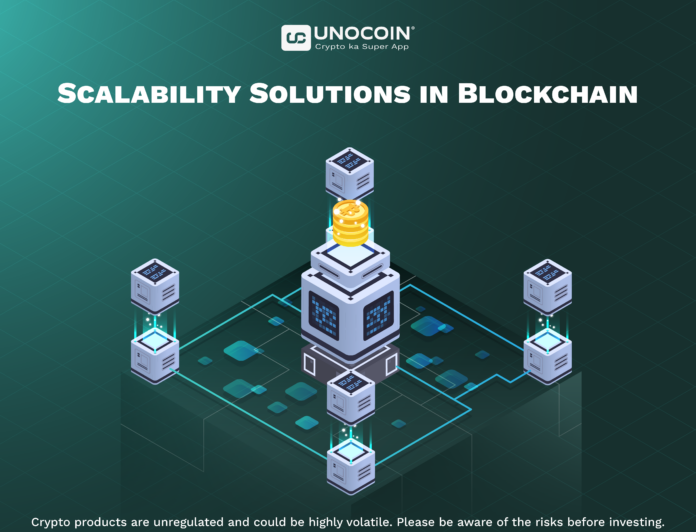
Blockchain technology has revolutionized various industries by providing transparent, secure, decentralized systems. However, as adoption has grown, scalability issues have emerged that limit the speed and efficiency of blockchain networks. To address these challenges, developers have been working on scalability solutions to increase throughput, reduce transaction costs, and improve overall performance.
Layer 2 solutions: Layer 2 solutions build on existing blockchain networks and offload transaction processing from the main chain. Examples include payment channels such as the Lightning Network for Bitcoin and state channels for Ethereum. By performing off-chain transactions and periodically settling on the main chain, Layer 2 solutions greatly increase scalability and reduce congestion.
Sharding: Sharding is a technique that involves dividing a blockchain network into smaller subsets called shards. Each fragment processes part of transactions independently, parallelizing throughput and increasing network capacity. Ethereum 2.0 implements sharding as part of its upgrade to address scalability issues and improve performance.
Consensus Mechanism Optimization: Traditional consensus mechanisms such as Proof of Work (PoW) and Proof of Stake (PoS) have limitations in terms of scalability and energy consumption. New consensus algorithms such as Delegated Proof of Stake (DPoS) and Practical Byzantine Fault Tolerance (PBFT) prioritize scalability by sacrificing some decentralization. These optimized consensus mechanisms enable faster transaction processing without compromising network security.
Sidechains: Sidechains are independent blockchains interoperable with the main blockchain. They allow specific tasks or applications to be executed without overloading the main chain. Projects like RSK and Plasma implement sidechains that enable scalability for smart contract execution and decentralized applications (DApps).
Blockchain Interoperability: The goal of interoperability solutions is to connect different blockchain networks, enabling seamless communication and transfer of assets between different platforms. Technologies such as atomic swaps and cross-chain bridges facilitate interoperability and increase scalability by distributing transaction volume across multiple chains.
State Channels: State channels enable off-chain interactions between participants, reducing the burden on the main blockchain. By opening the state channel, users can make multiple transactions privately and securely before the final state on the main chain is resolved. This approach minimizes congestion and latency while maintaining the security guarantees of the underlying blockchain.
Scalability solutions play a key role in realizing the full potential of blockchain technology by addressing bottlenecks and improving network efficiency. As developers continue to innovate and implement these solutions, blockchain networks will become more scalable, paving the way for widespread adoption and mainstream integration across various industries.
Please find the list of authentic Unocoin accounts for all your queries below:
- YouTube Channel: https://www.youtube.com/c/Unocoin/videos
- Newsletter: https://medium.com/subscribe/@Unocoin_growth
- Blogs: https://blog.unocoin.com
- Instagram: https://www.instagram.com/unocoin/
- Twitter: https://twitter.com/Unocoin
- Facebook: https://www.facebook.com/unocoin/
- LinkedIn: https://in.linkedin.com/company/unocoin
- Telegram Group: https://t.me/Unocoin_Group
- Telegram Channel: https://t.me/+fasQhTKBsfA5N2Zl
- Telegram: https://t.me/UnocoinSupport_Bot
- E-mail id: [email protected]
- Contact details: 7788978910 (09:30 AM IST – 06:30 PM, Mon-Sat)
- App store link: https://apps.apple.com/us/app/unocoin/id1030422972?ls=1
- Playstore link: https://play.google.com/store/apps/details?id=com.unocoin.unocoinwallet
Disclaimer: Crypto products are unregulated as of this date in India. They could be highly volatile. At Unocoin, we understand that there is a need to protect consumer interests as this form of trading and investment has risks that consumers may not be aware of. To ensure that consumers who deal in crypto products are not misled, they are advised to DYOR (Do Your Own Research).



![Fundamental Analysis in Crypto [Updated Guide] A Comprehensive Guide to Asset Valuation.png](https://blog.unocoin.com/wp-content/uploads/2024/11/A-Comprehensive-Guide-to-Asset-Valuation-218x150.png)